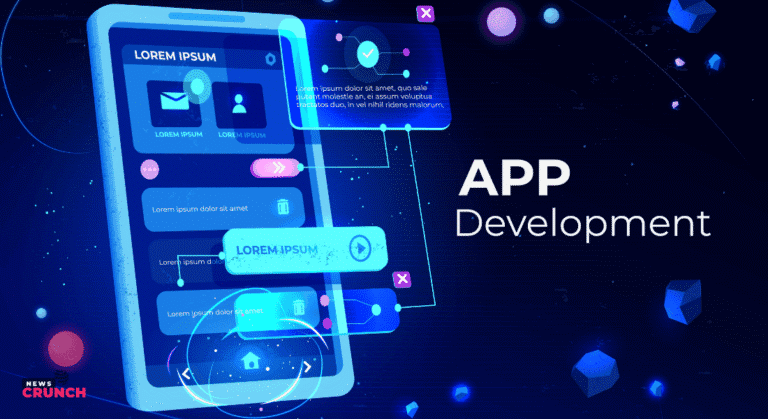
Artificial Intelligence (AI) is not just a buzzword, but a transformative force reshaping the business landscape. By 2026, its impact will be even more profound. Entrepreneurs, by staying informed, can harness this power to remain competitive. From automation to data analytics, AI is revolutionising business operations, offering a glimpse into a future of intelligent business solutions that are becoming essential. These solutions streamline operations and provide personalised customer experiences, inspiring a forward-thinking approach. This trend is set to grow, promising a future of business operations. Companies increasingly leverage AI-driven tools and platforms, such as Dynamics 365 integrations.
The transformative power of AI in commerce is reshaping how businesses interact with customers. Predictive analytics and machine learning are revolutionising supply chain management and customer service. The integration of AI is not just a change; it’s a transformation that leads to increased efficiency, reduced costs, and improved decision-making processes. Businesses can no longer afford to ignore these benefits. AI-driven chatbots and virtual assistants are becoming standard, providing 24/7 support and personalised interactions. This is not just a change, it’s a transformation in customer service.
The role of AI in anticipating market trends is crucial for businesses. It enables more strategic planning and better outcomes. AI’s role in cybersecurity is equally important, helping protect sensitive data and prevent cyber threats. As AI evolves, so will its applications. Entrepreneurs must watch these trends closely. The future of AI in business holds immense potential. Staying ahead in anticipating market trends is key to success.
The Evolution of AI in Business: 2024 to 2026
AI is evolving rapidly, transforming how businesses operate. From 2024 to 2026, these changes will accelerate, impacting all sectors. For a broader view on emerging technologies shaping the near future, see Technology Advances Shaping 2026. This period is crucial for adopting AI technologies. Enterprises are increasingly leveraging AI for automation. This shift aims to improve efficiency and cut costs. Once manual processes are AI-driven, human resources will be freed up. AI’s evolution is marked by its growing analytics capabilities. Advanced data analytics provide deeper insights into consumer behavior. Businesses can now make more informed decisions.
The rise of intelligent business solutions is a key trend. These solutions offer tailored experiences for customers. Personalization is not just desired; it is expected in today’s market. AI in commerce is enhancing the customer journey. By 2026, businesses will rely on AI for seamless customer interactions. From chatbots to virtual assistants, the touchpoints are expanding. Cybersecurity is another area of significant evolution. AI enhances protective measures against data breaches. Businesses are increasingly turning to AI to safeguard sensitive information.
Here’s how AI is evolving in business:
- Enhanced automation for operational efficiency
- Advanced analytics for data-driven insights
- Intelligent solutions for personalised customer experiences
- Robust cybersecurity measures
AI’s evolution is not a possibility but a certainty that will continue to drive innovation. Its evolution is set to unlock new business opportunities, and the next few years will be transformative for businesses using AI. The competitive edge lies in early adoption. Companies embracing AI now will lead tomorrow’s markets. Businesses must prepare for this inevitable shift, understanding that the time to adapt and stay ahead is now.
In conclusion, the evolution of AI from 2024 to 2026 will reshape business practices. Those who adapt will thrive in this new AI-powered world.
Intelligent Business Solutions: The Next Generation
The future of AI in business is not just a possibility but a promise of advanced intelligent solutions that are set to revolutionise business operations and customer engagement. By 2026, AI will permeate various business aspects, offering unprecedented efficiencies and an exciting and full-of-potential future.
Intelligent business solutions will streamline processes. Automation of routine tasks will be widespread, reducing human error. These solutions will allow companies to optimise workflows effectively. For example, real estate businesses are already leveraging CRM platforms to streamline client management and enhance productivity. Explore real estate CRM solutions that boost business. AI solutions are becoming increasingly adaptive. They will learn and evolve to better serve business needs. This adaptability will be critical in dynamic market environments.

Personalisation is a core feature of next-gen AI solutions. They will customize experiences for users, increasing satisfaction and loyalty. Businesses will gain an edge by offering tailored interactions. Predictive analytics will guide business strategy. Data-driven insights will be integral to decision-making. Companies will rely on AI to forecast trends and meet future demands.
Here are key characteristics of intelligent business solutions:
- Automation of routine tasks to enhance efficiency
- Adaptability to changing business environments
- Customisation of user interactions
- Use of predictive analytics for strategic planning
AI will enable smart supply chain management. Predictive tools will enhance logistics and reduce costs, and supply chains will be more responsive to market conditions. Moreover, intelligent solutions will redefine customer service. AI-driven chatbots will provide real-time assistance, and this level of service will become a standard expectation among consumers.
The benefits are clear, but challenges exist. Implementation requires investment in infrastructure and training. Companies must be prepared to upskill their workforce. Intelligent business solutions promise a competitive advantage. They offer the chance to exceed customer expectations and dominate markets. By 2026, these solutions will be indispensable to success. Innovation will continue to push AI boundaries. Businesses must stay agile and responsive to new technologies. Embracing intelligent solutions will be key to thriving in an AI-driven world.
AI in Commerce: Transforming the Customer Experience
AI is set to transform commerce by 2026. The technology will redefine how businesses interact with customers, enhancing every facet of the customer experience. With AI, companies can offer more personalised and efficient services. AI will improve supply chain management. Businesses can forecast demand more accurately, optimising inventory levels. As a result, products will be available when and where customers need them.
Personalised shopping experiences will become standard. AI will analyse consumer data to tailor recommendations and promotions. This customisation will increase satisfaction and customer loyalty. Predictive analytics will anticipate customer needs. Businesses can leverage data to address issues preemptively. This proactive approach will lead to better customer retention and fewer complaints.
Here are some ways AI will transform commerce:
- Enhanced supply chain management for better inventory control
- Personalised shopping experiences based on consumer data
- Proactive customer service with predictive analytics
- Automated customer interactions through AI chatbots
AI-driven chatbots will become integral to customer service. They will handle routine inquiries, freeing human agents for more complex issues. This efficiency will improve response times and customer satisfaction. Moreover, visual search technologies will evolve. AI will allow customers to search for items using images, not words. This capability will revolutionise how people shop online.
AI’s impact extends to marketing strategies. Hyper-targeted advertising will become more precise. Businesses will reach the right audience with the right message at the right time. Despite the benefits, challenges remain. Privacy concerns are paramount, as AI relies on personal data. Companies must navigate these issues to build trust and comply with regulations.
AI in commerce offers immense potential. It can transform the customer journey from start to finish. By 2026, businesses that embrace AI will set themselves apart in a competitive marketplace. In summary, AI is poised to revolutionise commerce. Its ability to personalise, predict, and enhance efficiency will redefine the retail landscape. Businesses must harness this power to improve customer experiences and secure their future success.
AI-Driven Automation and Business Operations
AI-driven automation is changing business operations at their core. By 2026, automation will be crucial for companies striving for efficiency. From mundane tasks to complex processes, AI is streamlining operations. Businesses benefit from automation by saving time and reducing costs. Routine tasks like data entry and scheduling can be automated easily. This lets employees focus on strategic initiatives rather than repetitive activities.
AI systems also offer enhanced decision-making capabilities. They analyse vast amounts of data quickly, providing insights that improve operations. This enables faster and more informed decision-making processes. Furthermore, workflow automation tools integrate AI to optimise processes. They identify bottlenecks and suggest improvements. As a result, operations become smoother and more transparent.
Key benefits of AI-driven automation include:
- Time savings through task automation
- Cost reductions via streamlined processes
- Enhanced decision-making with data-driven insights
- Improved workflow efficiency and transparency
One powerful application of AI is in predictive maintenance. AI systems predict equipment failures before they happen. This reduces downtime and prevents costly repairs, maintaining operational efficiency. Moreover, AI supports dynamic pricing strategies. Businesses can adjust prices in real-time based on market conditions and consumer behaviour. This adaptability increases competitiveness and maximises revenue.
AI-driven automation extends to customer service with virtual assistants. These AI tools handle customer inquiries around the clock. They provide quick responses, improving customer satisfaction and loyalty. Yet, implementing AI automation requires careful planning. Businesses must consider integration, employee training, and data management. Success depends on aligning these elements with business goals.
In summary, AI-driven automation is set to revolutionise business operations. Eliminating inefficiencies and enhancing decision-making offer businesses a competitive edge. Those adopting AI in 2026 will be well-positioned to thrive.
Predictive Analytics and Data-Driven Decision Making
In the ever-evolving business landscape, predictive analytics stands out as a game-changer. By 2026, businesses will increasingly rely on AI-driven analytics to inform their strategic decisions. This shift allows companies to anticipate future trends and behaviours, staying ahead of the competition. Predictive analytics utilises machine learning algorithms to analyse past data. The insights derived help forecast future events. This capability is crucial for businesses aiming to optimise their operations and resources.
Data-driven decision-making offers significant advantages. Companies can understand customer needs and tailor their services. This leads to increased customer satisfaction and loyalty. Moreover, by identifying patterns, businesses can prevent potential risks. Businesses across various sectors are leveraging predictive analytics. For instance, retailers use it to manage inventory effectively. Financial institutions assess credit risk and detect fraudulent activities. These applications demonstrate the widespread impact of predictive analytics.
Key benefits of predictive analytics include:
- Forecasting market trends and consumer behaviour
- Optimising resource allocation and inventory management
- Enhancing customer satisfaction through personalised services
- Mitigating risks with advanced risk analysis
Incorporating predictive analytics requires a data-centric approach. Companies must ensure data quality and integrity for accurate insights. Investing in robust data infrastructure and skilled personnel is essential for successful implementation.
Furthermore, AI-driven tools must continuously adapt and improve. As new data emerges, systems must recalibrate to maintain accuracy. This adaptability ensures relevant and effective decision support. In conclusion, predictive analytics is transforming how businesses make decisions. By leveraging AI capabilities, companies gain a competitive edge in understanding their environment. In 2026, this approach will be integral to strategic planning and success.

AI-Powered Marketing and Hyper-Personalisation
Artificial intelligence is significantly transforming the marketing landscape. By 2026, AI-powered marketing will redefine how businesses engage with customers. Hyper-personalisation stands at the forefront of this shift, enhancing marketing strategies. AI technologies analyse vast amounts of consumer data to deliver tailored content. This approach ensures customers receive relevant offers and messages. Personalised experiences lead to increased engagement and loyalty.
Hyper-personalisation moves beyond traditional segmentation. It involves creating unique customer profiles based on behavioural data. Businesses can then craft marketing campaigns that resonate on an individual level.
The impact of AI on marketing includes several key benefits:
- Enhancing customer segmentation with precise targeting
- Delivering relevant content through dynamic recommendations
- Improving ad performance with data-driven insights
- Streamlining customer journeys for better experiences
Moreover, chatbots and virtual assistants play a crucial role in personalisation. They interact with customers in real time, providing instant support. These tools collect valuable data to refine marketing strategies further.
Businesses must focus on data quality and integration to capitalise on AI in marketing. Effective use of AI relies on accurate, comprehensive data. Investing in advanced analytics tools and expertise is essential to harnessing AI’s full potential. Ethical considerations also need attention. While personalisation offers benefits, businesses must safeguard customer privacy. Establishing transparency and consent are vital for maintaining trust and compliance with regulations.
The Role of AI in Cybersecurity and Risk Management
In 2026, AI’s role in cybersecurity will be indispensable. As cyber threats evolve, businesses need intelligent solutions to safeguard data. AI offers powerful tools to manage risks and secure digital environments. Machine learning algorithms detect anomalies and potential threats in real time. This proactive approach allows businesses to respond swiftly. AI’s speed in identifying threats reduces the window for possible damage.
An essential aspect of AI in cybersecurity is its predictive capabilities. By analyzing patterns, AI systems forecast potential attacks. This enables companies to implement preventive measures before threats materialise. AI also assists in automating routine security tasks. By handling low-level alerts, AI frees human experts to focus on complex challenges. This collaboration enhances an organisation’s overall security posture.
Key benefits of AI in cybersecurity include:
- Real-time threat detection and response
- Predictive analytics for identifying potential risks
- Automation of routine security tasks
- Advanced fraud detection and prevention
However, adopting AI for cybersecurity requires careful planning. Organisations must ensure AI systems are trained with high-quality, diverse data. This approach helps achieve accurate threat identification and minimise false positives. Businesses should also consider the ethical implications of AI in security. Transparency in AI processes builds trust with stakeholders. Furthermore, establishing clear guidelines for AI deployment enhances credibility and compliance. As AI reshapes cybersecurity, a strategic approach ensures effective protection and risk management.
Human-AI Collaboration: The Future Workforce
The future workforce will blend human creativity and AI efficiency. As AI assumes routine tasks, humans can focus on innovation and strategic functions. This collaboration is set to transform workplace dynamics. AI systems augment human capabilities by processing vast amounts of data quickly. They provide actionable insights, enabling smarter decision-making. These insights drive innovation across various industries, from manufacturing to healthcare.
Employees will work alongside AI-powered tools that automate repetitive processes. This synergy increases productivity and job satisfaction as workers engage in more meaningful tasks. Furthermore, it fosters an environment of continuous learning and adaptation. The integration of AI into the workforce also demands new skills. Employees need to develop technical expertise to work with AI technologies effectively. Upskilling and reskilling become essential components of modern career development.
Key factors driving human-AI collaboration include:
- Automation of repetitive tasks
- Enhanced data-driven decision-making
- Increased focus on strategic responsibilities
- Continuous learning and skill development
Companies must cultivate a culture of openness and adaptation for effective human-AI collaboration. Encouraging employees to embrace AI as a tool rather than a threat enhances this synergy. Transparent communication about AI roles can reduce resistance and fear.
As AI continues to evolve, the human touch remains invaluable. Empathy, creativity, and ethical judgment are uniquely human traits that AI cannot replicate. Therefore, leveraging these strengths alongside AI tools ensures a balanced, dynamic workforce ready to tackle future challenges.
AI and Global Business: Perfect for the Foreign Tech Audience
AI’s impact is global, with businesses across continents reaping its benefits. It breaks down barriers, enabling seamless operation across different geographical and cultural landscapes. For tech-savvy audiences abroad, this presents a golden opportunity. In global commerce, AI optimises cross-border operations—companies like Revo Technologies in Utah. By analysing diverse datasets, AI systems help identify international trends and consumer preferences. This insight drives effective marketing strategies tailored for various regions.
AI-powered language processing tools facilitate communication across language barriers. These tools translate and interpret in real-time, ensuring clear exchanges between international partners. Hence, they promote smoother collaboration in global markets. Moreover, AI enhances the supply chain by predicting demand across regions. This capability allows businesses to manage inventory more efficiently, reducing costs and improving customer satisfaction globally. As a result, companies can cater to varied regional demands with precision.
Key benefits of AI in global business include:
- Enhanced market analysis
- Effective cross-cultural communication
- Improved supply chain management
- Tailored regional marketing strategies
For the foreign tech audience, AI offers a frontier of innovation. It allows companies to leverage new technologies to enter and expand in new markets, and firms that understand AI’s potential can stay ahead of global competitors.
In conclusion, AI is indispensable in global business. It enables efficiency, innovation, and connectivity worldwide. Entrepreneurs and business leaders must embrace AI to harness its potential for international success.
Ethical, Legal, and Regulatory Considerations for AI in Business
As AI integration deepens, ethical and legal issues gain importance. Businesses must navigate a complex landscape of regulations to ensure compliance. This requires a keen understanding of the evolving legal frameworks surrounding AI technologies. Ethical considerations include transparency, accountability, and fairness. AI systems should be designed to provide clear, unbiased outcomes. Ensuring these ethical standards prevents misuse and builds trust with consumers and stakeholders.
Regulations vary across regions, making compliance a challenge. Companies operating globally need to stay informed about regional laws governing AI use. This includes data protection, consumer rights, and technology-specific regulations. Moreover, AI systems can inadvertently reinforce existing biases. Developing algorithms with fairness in mind is crucial. Businesses must implement rigorous testing to ensure equitable outcomes across different demographic groups.
Legal considerations entail intellectual property rights. As AI creates innovations, understanding how to protect these creations is essential. Companies need clear policies to manage AI-generated assets.
Key considerations for businesses include:
- Ensuring transparency and fairness
- Navigating regional regulations
- Protecting intellectual property
- Preventing algorithmic bias
In the future, collaborative efforts between governments and tech companies will likely shape new policies. Businesses must actively participate in these discussions. This proactive approach helps shape regulations that balance innovation with responsibility.
Navigating these considerations requires foresight and adaptability. Businesses must prioritise ethical and legal compliance to sustain long-term success. They can leverage AI effectively within law and ethics by staying informed and proactive.
Preparing for the Future: Upskilling and Reskilling for AI
The rise of AI in business necessitates a workforce ready to adapt. As AI transforms industries, employees need new skills to stay relevant. This means prioritising upskilling and reskilling initiatives for sustained business growth. Upskilling involves enhancing current skills to match the demands of AI technologies. Employees might need to learn data analysis or AI programming. Such knowledge will empower them to leverage AI tools effectively.
Reskilling prepares workers for entirely new roles shaped by AI. Automation may alter job landscapes, but it also creates new opportunities. For instance, machine learning specialists are increasingly in demand. Organisations play a crucial role in this transformation. Offering training programs helps employees gain the necessary skills. Partnerships with educational institutions can provide access to specialised courses.
Employees should also be proactive. Learning independently, whether through online courses or workshops, can enhance their competitiveness. Staying curious about AI trends helps them anticipate industry shifts.
Essential steps for preparing the workforce include:
- Implementing structured training programs
- Encouraging self-directed learning
- Partnering with educational bodies
- Monitoring AI industry trends
Businesses that invest in workforce development will likely gain a strategic advantage. Preparing employees for an AI-driven future benefits individuals and strengthens the organisation as a whole. As the AI landscape evolves, a well-prepared workforce is an invaluable asset. Embracing these educational strategies ensures continued adaptability in a rapidly changing business environment.
Industry Spotlights: AI Trends in Key Sectors
AI’s impact varies across different industries, each adopting unique applications. In healthcare, AI streamlines diagnostics, treatment planning, and patient care. By 2026, AI will likely revolutionise precision medicine and drug discovery. AI enhances fraud detection, risk assessment, and customer service in finance. Automated trading and AI-driven analytics are set to become more sophisticated. This could redefine investment strategies and wealth management.
Retailers use AI to improve supply chain efficiency, inventory management, and customer experiences. As AI evolves, personalized shopping experiences and predictive inventory systems will become common, improving both efficiency and customer satisfaction. In manufacturing, AI-driven automation optimizes production lines, ensuring seamless operations. Predictive maintenance systems minimize downtime, enhancing operational efficiency and cost-effectiveness, transforming traditional manufacturing landscapes.
The transportation sector leverages AI for autonomous vehicles and logistics planning. By 2026, AI could significantly reduce traffic congestion and carbon emissions. It will also enhance safety and efficiency in public transportation systems.
Key AI trends across sectors include:
- Enhanced AI-driven diagnostics in healthcare
- Advanced predictive analytics in finance
- Personalised retail experiences
- AI-powered manufacturing processes
- Improved logistics in transportation
Education is another field that is seeing growth in AI integration. AI-powered tools offer personalised learning experiences and administrative efficiency. From virtual tutors to automated grading, AI revolutionises how educational institutions operate.
Overall, AI’s role in diverse industries is undeniable. Businesses must keep pace with these trends to remain competitive. By embracing AI innovations, sectors can improve efficiency, enhance customer experiences, and unlock new growth opportunities.
The Road Ahead: AI-Driven Innovation and Entrepreneurship
The fusion of AI and entrepreneurship is pivotal for future economic growth. As AI technologies advance, new business opportunities emerge. Entrepreneurs can leverage AI to create innovative solutions that address complex challenges. AI-driven tools empower startups to innovate faster than traditional methods. By automating routine tasks, entrepreneurs can focus on strategic growth and development. This shift enables quicker iteration and greater agility in the marketplace. We anticipate an increase in AI-centric startups in 2026. These ventures will harness AI for unique products and services, from AI-powered customer service platforms to intelligent supply chain solutions. The potential is immense.
Collaboration between startups and tech giants can further fuel innovation. Such partnerships provide access to resources, talent, and market insights. This synergy accelerates AI advancements, benefiting both small and large enterprises. Entrepreneurs must stay informed about AI trends to stay competitive. Read the ultimate 2026 guide on mobile app development here. Building AI literacy within teams ensures they capitalise on technological shifts. Continuous learning and adaptation are crucial in this fast-evolving landscape. Entrepreneurs can harness AI to innovate, as seen in firms like Revo Technologies in Utah
Key opportunities for AI innovation include:
- Developing AI-based personalised services
- Creating predictive analytics platforms
- Innovating in cybersecurity with AI solutions
By embracing AI, entrepreneurs can break traditional barriers. AI offers the tools to enhance creativity, drive efficiency, and open new markets. As the AI landscape evolves, staying proactive is essential for sustainable business growth. Entrepreneurs are well-equipped to tackle future challenges and seize new opportunities with AI.
Conclusion: Staying Ahead in the AI-Powered Business World
As AI continues to reshape the business landscape, staying ahead is crucial for success. Entrepreneurs must embrace AI trends to thrive in a competitive environment. This involves proactive learning and adaptation to technological changes. Businesses must foster a culture of innovation and agility. Encouraging team members to experiment with AI solutions enhances their adaptability. This mindset drives long-term growth and sustainability in the AI-powered world.
To maintain a competitive edge, consider these strategies:
- Invest in AI training programs for employees
- Collaborate with AI tech experts and innovators
- Monitor and adopt emerging AI trends
Entrepreneurs should focus on building resilient AI strategies. This includes ethical considerations and regulatory compliance. Addressing these aspects ensures responsible AI integration, reducing potential risks. By harnessing AI technology effectively, businesses can unlock unprecedented opportunities. Staying informed and agile prepares entrepreneurs for future challenges. Together, these efforts enable companies to lead in the rapidly evolving AI-driven market.
Read Also: Top UK Tech Startup Founder
FAQs
1. What role will AI play in business by 2026?
AI will drive automation, predictive analytics, and personalisation, helping businesses cut costs, improve efficiency, and enhance customer experiences.
2. How is AI transforming customer service?
AI chatbots and virtual assistants provide 24/7 support, quick responses, and personalised interactions, reducing wait times and improving satisfaction.
3. Why is predictive analytics important for businesses?
It helps companies forecast trends, optimise resources, and make data-driven decisions that boost efficiency and customer loyalty.
4. How does AI improve supply chain management?
AI predicts demand, streamlines logistics, and reduces costs by ensuring inventory is managed efficiently and delivered on time.
5. What is hyper-personalisation in AI marketing?
It’s using AI to analyse customer behaviour and deliver highly relevant, tailored offers, boosting engagement and brand loyalty.
6. Can AI help with cybersecurity?
Yes, AI detects real-time threats, predicts risks, and automates routine security tasks, strengthening digital protection for businesses.
7. Will AI replace human jobs by 2026?
Not entirely. AI handles repetitive tasks while humans focus on creativity, strategy, and innovation, creating a balanced workforce.
8. What challenges come with adopting AI in business?
Challenges include high setup costs, data privacy concerns, regulatory compliance, and the need for workforce upskilling.
9. Why should entrepreneurs adopt AI early?
Early adoption ensures a competitive edge, allowing businesses to innovate, scale faster, and lead in AI-driven markets.
10. How can businesses prepare for AI’s future?
They should invest in AI training, embrace ethical practices, and integrate intelligent solutions to stay agile and competitive.










